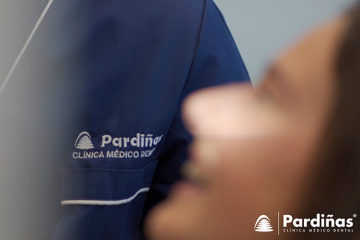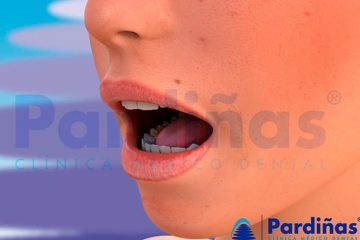 Pardiñas Dental Clinic has received interesting information about how a dental professional should treat a patient suspected of being infected by Ebola. Although this is an information for dentists, we believe that the contents may be useful to our readers. Therefore, we share with you the news sent by the American Dental Association.
Pardiñas Dental Clinic has received interesting information about how a dental professional should treat a patient suspected of being infected by Ebola. Although this is an information for dentists, we believe that the contents may be useful to our readers. Therefore, we share with you the news sent by the American Dental Association.
A person infected with Ebola is not considered contagious until symptoms appear. Due to the virulent nature of the disease, it is highly unlikely that someone with Ebola symptoms will seek dental care when they are severely ill. However, according to the Centers for Disease Control and Prevention and the ADA Division of Science, dental professionals are advised to take a medical history, including a travel history from their patients with symptoms in which a viral infection is suspected.
Any person within 21 days of returning from the West African countries Liberia, Sierra Leone and Guinea may be at risk of having contacted persons infected with Ebola and may not exhibit symptoms. If this is the case, dental professionals are advised to delay routine dental care of the patient until 21 days have elapsed from their trip. Palliative care for serious oral health conditions, dental infections and pain can be provided if necessary after consulting with the patient’s physician and conforming to standard precautions and physical barriers.
An elevated temperature (fever) is often a consequence of infection, but Ebola is not the only infection that may have similar signs and symptoms. The most common signs and symptoms of Ebola infection are:
· fever (greater than 38.6°C or 101.5°F) and severe headache
· muscle pain
· vomiting
· diarrhea
· stomach pain or unexplained bleeding or bruising
You are advised not to treat dental patients if they have these signs and symptoms for Ebola. If a patient is feeling feverish and their travel history indicates they may be at risk of Ebola, dental professionals and staff in contact with the patient should:
- immediately protect themselves by using standard precautions with physical barriers (gowns, masks, face protection, and gloves)
- immediately call 911 on behalf of the patient
- notify the appropriate state or local health department authorities
- ask the health department to provide you and your staff with the most up-to-date guidance on removing and disposing of potentially contaminated materials and equipment, including the physical barriers.
The Ebola virus is spread through direct contact (through broken skin or mucous membranes) with blood and body fluids (urine, feces, saliva, vomit and semen) of a person who is sick with Ebola, or with objects (like needles) that have been contaminated with the virus. Ebola is not spread through the air or by water or, in general, by food. Again, there is no reported risk of transmission of Ebola from asymptomatic infected patients.


